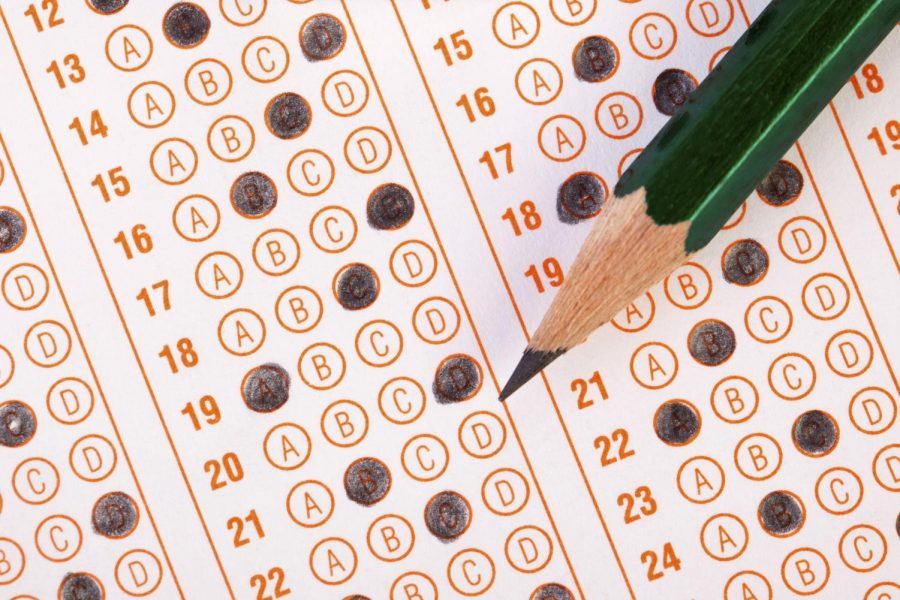Volusia County Schools will reduce ELA and math testing time by 45% this year
The Daytona Beach News-Journal | Danielle Johnson | October 12, 2022
Volusia County Schools students will spend significantly less time taking formal tests this year, following changes to the district’s assessment calendar approved at Tuesday night’s school board meeting.
The changes for the 2022-23 school year, which were made for English language arts and math tests, mean students will spend 45% less time being evaluated on district-required exams in those subjects, on average. The reduction in instructional minutes used for administering district ELA and math assessments is as high as 50% for elementary schools.
The new calendar was commended by board members and administration for giving teachers valuable instructional time back.
The adopted changes also bring the district average to less than 2% of a student’s total school hours spent for statewide and district assessments, according to a presentation by VCS Research, Evaluation and Assessment Coordinator Angel Teron. The state-legislated maximum is 5%.
“We all wanted valid and reliable assessments, but we also wanted an appropriate number of valid and reliable assessments,” Teron said. “This proposal begins that work.”
Number of tests, minutes spent testing will be reduced
The numbers of district assessments reduced varies by grade. For ELA and math in third through fifth grade, there will be six total Volusia Benchmark Assessments (VBAs) instead of 23 to 24 previously.
In sixth through eighth grade, the number will drop from 18 to nine (including three writable ELA exams). In ninth and tenth grade, assessments will drop from 13 to nine (including three writable).
There are no district assessments for kindergarten or first grade. There is one ELA and three math district VBAs for second grade.
The reduction in minutes spent during exams varies, but the drop was more than half in some levels, including from 540 minutes to 180 minutes in sixth grade math, for example.
“The idea is to give teachers instructional time back so that they can provide the necessary remediation, intervention and acceleration that our students need,” Teron said.
The grades with three rounds of VBAs will see ELA and math exams take place at three different times throughout the year. The first round will occur in October or November depending on the subject and grade. The second will occur in December, January or February. The third will occur in February, March or April.
Existing progress monitoring tests for science and social studies, which include Volusia Science Tests, Standards Monitoring Tests and District Interim Assessments, will continue to be administered.
Kindergarten through 10th grade will still have required state progress monitoring tests, including three ELA exams in each of those grades, three math exams through eighth grade and an end-of-course exam for algebra and geometry.
The three state math and ELA exams are the new Florida Assessment of Student Thinking (FAST) tests that replaced the Florida Standards Assessments (FSA) this year.
Move will return instructional time to teachers
“When you are teaching a lesson, it’s not about what the teacher is saying. It’s about what the students are learning, and the only way to really get to that is to … really drill down to what have the students learned, and that requires some form of assessment,” Deputy Superintendent for Teaching, Leading and Learning Rachel Hazel said.
As such, teachers may still use various chapter tests, growth measures, topic checks and weekly and unit assessments at the school level to obtain data to make instructional decisions, but the change will take away the formalities and time requirements.
This is, in part, because teachers and parents have expressed concern about the stressful situation students are put in when they stop everything and make testing such a formal process, Hazel said.
Teron added that they want to give flexibility to instructors to provide individual support based on school results. He said the proposal streamlines the assessment schedule and returns valuable instructional time to teachers.

“I’m greatly appreciative of the reduction in time, and I think our next step to addressing our learning gaps and being able to get one-on-one with the kids is how much sustainable time, continual time that we have with our students,” Board Member Linda Cuthbert said.
She recommended continuously working to provide more uninterrupted instructional time, whether from tests, drills or other school events.
“I’m glad now that we have cut back the formality while still giving teachers the options to give whatever assessments they feel are fit,” Board Member Carl Persis said.
Volusia United Educators President Elizabeth Albert applauded the testing reduction as a “win” during public comment and jokingly likened the “great surprise” to “finding a dollar in the dryer.”
She did critique that teachers were not formally involved in the committee that made the recommendations. She also said the next step should be providing more planning time for teachers, which could translate to more student success.
The updated district uniform assessment calendar will be submitted to the state, Hazel said.






